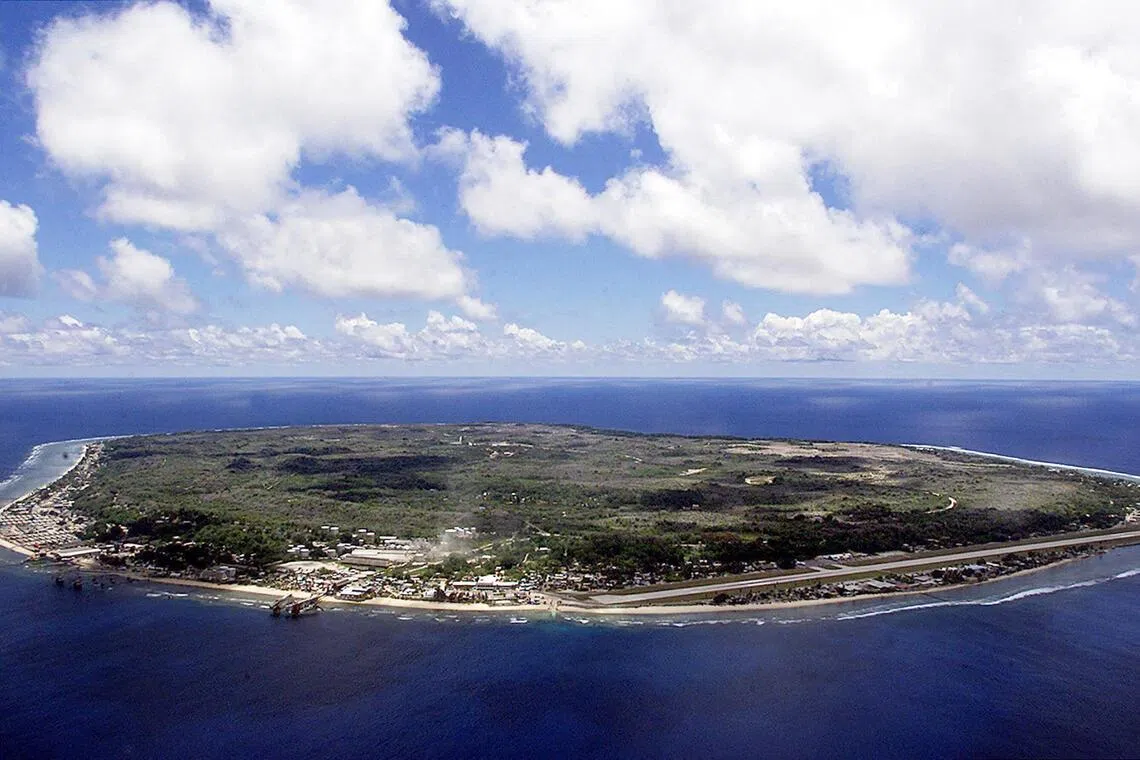Australia defends plan to send deportees to tiny Pacific nation of Nauru
Sign up now: Get ST's newsletters delivered to your inbox

Nauru is a country of 12,000 people that occupies just 21 sq km and relies on foreign aid.
PHOTO: AFP
Follow topic:
SYDNEY - Australia on Oct 19 defended a A$2.5 billion (S$2.1 billion) deal to deport hundreds of non-citizens to the tiny Pacific nation of Nauru over the next 30 years, a plan criticised by human rights groups.
Australia's centre-left Labor government in September signed the deal with Nauru to resettle people denied refugee visas
On Oct 19, Home Affairs Minister Tony Burke said 30-year visas issued to deportees would give them the right to work in Nauru, a country of 12,000 people that occupies just 21 sq km and rely on foreign aid.
“I’ve gone and inspected personally the accommodation and inspected the health facilities there and the standard there is good,” Mr Burke told Australian Broadcasting Corp television.
He said on Oct 19 health facilities on the island were “way beyond” what some people have speculated about their standards.
Human Rights Watch said in September that asylum seekers forcibly transferred to Nauru by Australia had died from medical neglect and suicide.
A 2025 Brigham Young University report said that healthcare systems in Pacific island nations, including Nauru, consistently fall short of World Health Organisation standards.
Under the deal, Nauru will receive A$400 million upfront to establish an endowment for the resettlement scheme, plus A$70 million annually for the 30-year life of the agreement.
Nauru will decide which non-citizens it will accept, although the funds can be clawed back by Australia if the scheme does not meet expectations.
Business owners and community workers in Nauru have expressed mixed feelings to Reuters about people with criminal records being resettled on the island.
Nauru already hosts an Australian-funded processing centre for asylum seekers which provided the country $A200 million or two-thirds of its revenue in 2024. REUTERS

